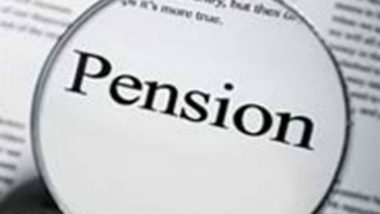New Delhi: The decision of some states to restart the Old Pension Scheme will be decidedly a regressive move and will provide more privilege to government servants at the cost of a larger public, the majority of which has no social safety net, former RBI governor D Subbarao has said.
Under Old Pension Scheme (OPS), employees get a defined pension. An employee is entitled for a 50 per cent amount of the last drawn salary as a pension.
OPS was discontinued by the NDA government in 2003 with effect from April 1, 2004.
“That will be a decidedly regressive move both for our commitment to fiscal responsibility, and more broadly for the credibility of our reforms,” Subbarao told PTI.
Under the new pension scheme(NPS), employees contribute 10 per cent of their basic salary towards pension while the government contributes 14 per cent.
“In a country where the large majority of the people have no social safety net, government servants with an assured pension are a privileged lot. “Privileging them even further at the cost of the larger public will be morally wrong and fiscally detrimental,” he said.
According to Subbarao, if state governments revert to a ‘pay as you go’ pension scheme, the burden of pensions will fall on current revenues which in turn means foregoing schools, hospitals, roads and irrigation.
The governments of Rajasthan, Chhattisgarh and Jharkhand have informed the central government/ Pension Fund Regulatory and Development Authority (PFRDA) about their decision to restart OPS for their employees.
The government of Punjab November 18, 2022 issued a notification regarding the implementation of OPS for the state government employees who are being covered under NPS. Jharkhand too has decided to revert to OPS.
Replying to a question on India’s rising current account deficit (CAD), Subbarao noted that at the beginning of this year, there were concerns that CAD will rise to as high as 4 per cent of GDP because of high commodity prices and slackening exports.
“The pressure has since eased in the last few months because commodity prices have softened, correcting by as much as 15 per cent from their peak,” he said, adding that more importantly, India’s service exports have been performing remarkably.
According to the commerce ministry numbers, India’s services exports increased 25 per cent from USD 185 billion in April-December 2021 to USD 236 billion in the same period of 2022.
Pointing out that this growth has been broad-based, extending beyond software to BPO services and R&D, he said the expectation that digitization will make it possible to outsource even high-end service jobs seems to be materializing.
“We have learnt from experience that maintaining the CAD within safe limits has been critical to our macroeconomic stability.
“This means restraining non-essential imports and boosting exports,” he opined adding that banning imports, as India has learnt from experience, is not an efficient solution.
“If we find that non-oil, non-gold imports are increasing, part of the reason may be the inverted duty structure,” Subbarao said, adding that the government needs to review and correct that.
PTI






































